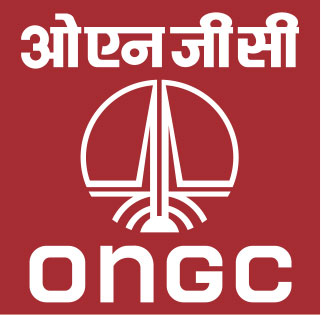Embrace Collaboration over Confrontation to navigate Energy transition: ONGC Chairman & CEO at ADIPEC 2023
Addressing a distinguished audience at the Strategic Conference of Abu Dhabi International Progressive Energy Congress (ADIPEC) 2023, Chairman & CEO of ONGC (Oil and Natural Gas Corporation) Arun Kumar Singh shared his leadership insights on how the energy giant was spearheading the charge towards decarbonization on 3 October 2023. His words resonated with a sense of optimism and determination that was nothing short of infectious.

In the backdrop of an industry grappling with the pressing need to reduce emissions during the extraction and production of fossil fuels, Mr Singh began by highlighting India's unique position. He emphasized that India's burgeoning population and robust economy were favourable factors in its quest for decarbonization. With an eye on the energy transition, the Chairman underlined how India was rapidly embracing renewable energy sources in its power sector, with an impressive 280GW of renewable capacity already in operation. The commitment to generate 50% of peak power from solar was well on its way to realization by 2030.
However, Mr Singh acknowledged the challenge on the oil and gas front. India had substantial gas reserves, but oil presented a conundrum. To facilitate this transition, India intended to utilize gas as much as possible. This shift represented one of the most compelling stories in the world of energy transition.
The Energy Maharatna Chairman spoke candidly about the delicate balance between oil and gas prices and the urgency of India's energy needs. He recognized that high oil and gas prices could accelerate the transition to greener energy solutions by providing the necessary financial resources for such a transformation. However, Mr Singh stressed that for India, the choice wasn't as simple. The country's rapid population growth, soaring economy, and immense energy demands meant that despite significant strides in renewables, the demand for oil and gas was expected to persist. In the larger global context, India's trajectory was unique, with the projection that a quarter of the world's energy growth would stem from the nation. Mr Singh's perspective shed light on the intricate dynamics of energy transition and the complex challenges facing a rapidly developing nation like India.
In this session, Mr Singh touched upon the multifaceted nature of the transition to cleaner energy. While acknowledging the allure of a swift and complete transformation, Mr Singh emphasized the practicality of a gradual decarbonization process. He stressed the importance of balancing reliability, sustainability, and affordability in energy solutions, highlighting that a rapid shift might not always be realistic or sustainable. The conversation underscored the challenges and trade-offs involved in navigating the evolving landscape of energy transition, where pendulum swings and policy overshoots are integral aspects of the journey toward a more sustainable future.

Addressing the upstream sector, Mr Singh delved into their two primary tasks. Globally, about 80% of gas was flared during oil and gas production. Remarkably, India has managed to minimize emergency flaring significantly in view of its large population. Additionally, the country consumed substantial amounts of gas in power generation. His strategy was to release these gases for consumption through improved power generation from sources such as solar and offshore wind. Furthermore, India had ambitious plans to introduce hydrogen plants powered by green gas.
Mr Singh emphasized that this wasn't a quick fix, but a 30-year journey. He believed that India's economic prowess would enable it to manage the required funding over this extended period. Collaboration, not confrontation, was his mantra for a successful energy transition. He saw the world as being divided between extremes, but believed that the truth lay somewhere in between. Ultimately, economics would determine the course of action, and he was confident that if the world was evenly divided among three approaches, it would create a safer and more sustainable future.
In this enlightening exchange, ONGC Chairman & CEO delved into the crucial aspect of standards and safety in the evolving energy landscape. He emphasized that while standards such as those related to hydrogen had evolved over time, others, like those for Carbon Capture and Storage (CCS), required a common global approach to prevent unintended hazards. Mr Singh's pragmatic perspective assured that standards would naturally evolve and adapt as technology progressed.
Moreover, the discussion touched on the urgency of addressing climate change in countries like India, situated in the sweltering heat belt. Mr Singh acknowledged the pressing need for swift action, especially in nations with high carbon and methane emissions. He highlighted the critical role of renewable energy sources like solar power and noted that the capital-intensive nature of hydrogen technology was a challenge but believed it would catch up in the next five to seven years. The audience gained insight into the significance of balancing economic development with sustainable energy practices, with Mr Singh concluding that the transition would involve a gradual, sector-by-sector approach, ultimately converging towards a cleaner and greener future.
The ADIPEC Strategic Conference saw the Chairman paint a picture of a determined and optimistic India, ready to embrace the energy transition. He acknowledged that the path might be influenced by oil and gas prices, but he remained resolute in his vision for a greener and more sustainable future for the nation.

